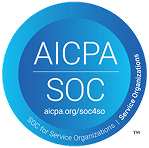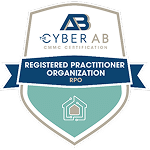Financial institutions worldwide rely on the Society for Worldwide Interbank Financial Telecommunication (SWIFT) network for secure and efficient international transactions. However, with the constantly growing cyber threats, ensuring the integrity and safety of this network is of utmost importance.This is where the SWIFT Customer Security Control Framework (CSCF) is essential.
The SWIFT CSCF is a set of guidelines for financial institutions in the SWIFT network to enhance their cybersecurity defenses against constantly changing digital threats. It is a crucial part of the broader SWIFT Customer Security Programme (CSP).
Financial institutions must adhere to the SWIFT CSCF to protect their operations from cyberattacks. Compliance with the CSCF framework meets regulatory standards and safeguards the security and reliability of financial transactions, ultimately building trust and confidence among stakeholders.
Understanding SWIFT CSCF
The SWIFT Customer Security Control Framework (CSCF) has three main objectives:
- Safeguarding the operating environment
- Managing access
- Detecting and responding to risks.
This framework applies to five SWIFT user architectures, namely A1, A2, A3, A4, and B.
The CSCF consists of thirty-two controls, twenty-four of which are mandatory, and eight are advisory. The mandatory controls are referred to as transaction business controls, which focus on identifying and preventing fraudulent outbound transaction activities. On the other hand, advisory controls aim to enhance customer protection measures, particularly on file transfers or middleware systems, also known as customer connectors.
The mandatory and advisory controls to combat cyber threats include various security procedures such as access control, data protection, incident response, physical security, and employee training. Therefore, adhering to the CSCF framework shows an institution’s commitment to fostering trust and stability in the financial ecosystem.
SWIFT CSCF Compliance Requirements
Adherence to the SWIFT Customer Security Controls Framework (CSCF) necessitates strict compliance with prescribed mandatory and recommended security measures. These measures are formulated to establish a robust security infrastructure for financial institutions operating in the SWIFT network.
Some requirements for SWIFT CSCF compliance are listed below:
- Customer security controls – comprise extensive security measures to protect customers’ personally identifiable information (PII), including financial records, within financial institutions.
- Mandatory and advisory security controls – a mixture of required and recommended controls that financial institutions should follow for compliance. The latter offers ‘nice-to-have’ suggestions for enhancing security measures.
- Access control policies – manage user access to sensitive data and resources, such as implementing least-privilege access and multi-factor authentication.
- Data protection and encryption policies – safeguard data integrity and confidentiality through security measures such as encryption and data masking.
- Incident response and reporting policies – guidelines for identifying, assessing, and addressing security breaches to reduce their impact on business operations.
- Physical and environmental security policies – are designed to protect vital infrastructure and assets from threats like theft and vandalism.
- Security awareness and training policies – focus on educating stakeholders about current and emerging cyber threats and vulnerabilities to foster a robust security culture.
Benefits of SWIFT CSCF Compliance
As threats continue to evolve, CSCF compliance remains a critical component of a comprehensive cybersecurity strategy for financial institutions worldwide. Compliance with the framework offers financial institutions several benefits, from enhanced cybersecurity and protection against fraudulent activities to improved trust and confidence among counterparties and customers. See more details below:
Enhanced Cybersecurity and Protection Against Fraudulent Activities
Compliance with the SWIFT CSCF offers financial institutions comprehensive security controls and best practices to fortify their cybersecurity posture. By implementing secure messaging, access controls, and threat intelligence sharing, institutions can significantly reduce the risk of unauthorized access, data breaches, and fraudulent transactions.
Improved Trust and Confidence Among Financial Institutions in the SWIFT Network
SWIFT is the backbone of global financial messaging, facilitating daily transactions between banks and financial institutions. Compliance with the CSCF demonstrates a commitment to maintaining the highest standards of security and integrity within the SWIFT network.
As a result, compliant institutions instill trust and confidence among their counterparts, fostering more robust partnerships and collaboration within the financial ecosystem. Enhanced trust translates to smoother transactions, reduced friction in interbank communications, and, ultimately, a more resilient and efficient financial system.
Positive Impact on Reputation and Customer Relationships
Consumers value the security and privacy of their financial information. Therefore, financial institutions prioritizing SWIFT CSCF compliance demonstrate a proactive approach to safeguarding customer data and mitigating cyber risks. This commitment to security protects customers from potential fraud and identity theft and enhances the institution’s reputation as a trusted custodian of sensitive financial information. As a result, compliant institutions can attract and retain customers who prioritize security and reliability in their banking relationships, leading to stronger customer loyalty and long-term profitability.
Implementation Challenges and Solutions
Financial institutions may encounter challenges implementing and maintaining strong cybersecurity measures that comply with SWIFT CSCF regulations. These challenges may arise due to limited resources, outdated systems and infrastructure, a complex regulatory environment, and constantly evolving cyber threats.
Despite the challenges of implementing the CSCF framework, financial institutions can overcome them by adopting specific key strategies and practical best practices:
- Risk-Based Approach: Prioritizing cybersecurity initiatives based on risk assessments allows organizations to allocate resources toward mitigating the most critical risks.
- Collaboration and Information Sharing: Encouraging collaboration and information sharing among financial institutions, industry peers, and regulatory bodies can help collectively address cybersecurity challenges and share valuable best practices.
- Continuous Monitoring and Improvement: Establishing a robust framework for continuous monitoring of cybersecurity controls enables organizations to assess their effectiveness and regularly identify areas for enhancement.
- Security Awareness and Training: Investing in comprehensive security awareness and training programs is crucial for educating employees on cybersecurity risks, best practices, and their role in maintaining a secure operating environment.
Conclusion
The repercussions of cyber breaches extend far beyond monetary losses. They erode trust, tarnish reputations, and disrupt the smooth functioning of the global financial system. Therefore, embracing SWIFT CSCF compliance is not just about ticking boxes—it’s about fortifying cyber defenses, fostering trust, and shaping the future of global finance.
By embracing SWIFT CSCF compliance, financial institutions are empowered with robust security measures to mitigate the risks of fraudulent activities and enhance the resilience of critical business operations in an increasingly digital world. Moreover, compliance with SWIFT CSCF fosters trust and confidence among counterparties and clients, strengthening an organization’s reputation as a trusted custodian of sensitive financial information.








